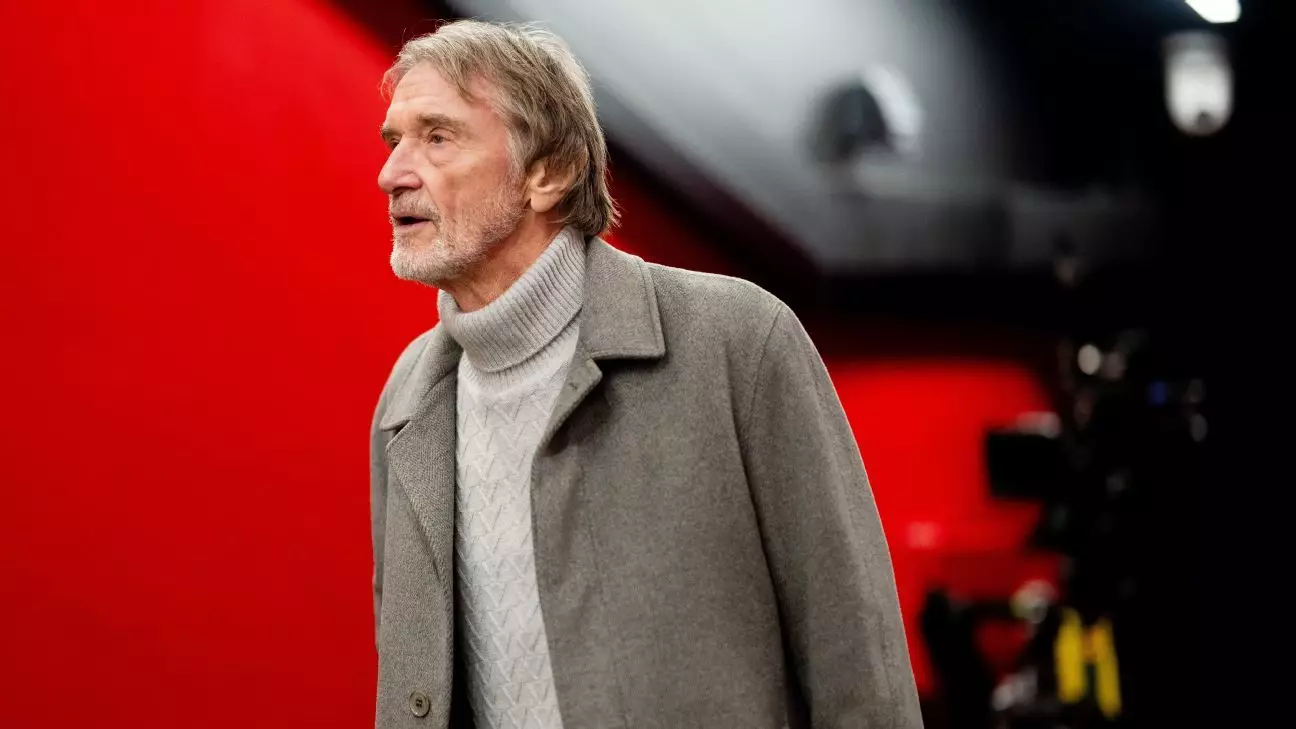In a troubling wave of cost-cutting measures, Manchester United has announced plans to reduce its workforce by an additional 200 positions. This announcement follows a previous round of job losses that saw around 250 employees departing last summer. The timing of these cuts is significant, coinciding with the one-year anniversary of Sir Jim Ratcliffe’s tenure as co-owner. The backdrop of financial insecurity has forced the club’s management to take drastic measures, undoubtedly sparking concern among its employees and fans alike.
Manchester United’s financial health has increasingly come under scrutiny. Over the past three years, the club has recorded losses exceeding £300 million, an alarming figure that reflects a broader issue in today’s football economy. The latest quarterly financial results reveal a drop in revenues, plummeting from £225.8 million to £198.7 million year-on-year. Such ongoing financial struggles exacerbate the sense of urgency to make budget cuts, casting doubt on the club’s ability to maintain and improve upon its performance across men’s, women’s, and academy teams.
According to CEO Omar Berrada, the responsibility of management extends beyond mere financial management and into restoring Manchester United’s competitive edge. He stressed that the club must be in a fortified position to achieve success on the pitch. The phrase “hard choices” underscores the painful reality that comes with restructuring. While communicating that redundancies are regrettable, management insists these measures are vital for stabilizing the club’s finances and positioning it for future investments.
In addition to reducing headcount, the club is also reorganizing its operational structure. Plans to relocate staff from Old Trafford to the Carrington training ground indicate a shift toward a more centralized operation, aiming to streamline costs effectively. Furthermore, the club is reducing its office presence in Mayfair, London, as part of this comprehensive strategy. Such operational changes reflect a nuanced approach to cost management in an effort to alleviate the financial strain that has persisted for several years.
The repercussions of these decisions extend beyond mere numbers on a balance sheet. The reality of job cuts can quickly erode trust and morale within the organization. Employees have also learned that perks, such as free lunches at Old Trafford, are being phased out—a move that, while fiscally prudent, sends a poignant message about the club’s prioritization of finances over employee satisfaction. How such changes will influence the workplace culture remains to be seen, especially as the club navigates through this tumultuous period.
The steps taken by Manchester United are indicative of a club at a crossroads. While the intended outcome of financial stability and reinvestment in on-field performance is laudable, the path there is fraught with difficult choices. As management works to rectify the current situation, the impact on personnel, culture, and ultimately on-field success remains an open question. True revitalization will depend not only on cutting costs but on balancing fiscal responsibility with a commitment to the people who make the club what it is. Thus, Manchester United finds itself in a precarious yet potentially transformative position, making the future both uncertain and keenly anticipated.

